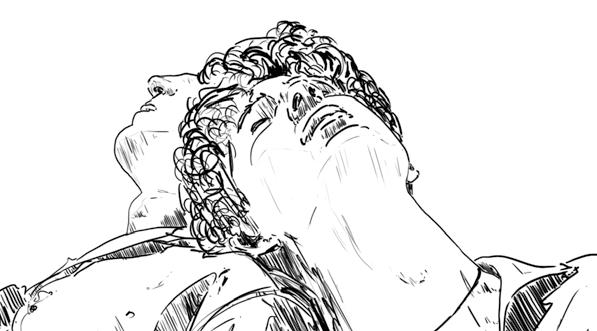
3 minute read
Climate Change: A Conversation
Climate Change:
A CONVERSATION
Advertisement
Maddie: Italics Lottie: Bold O n the 15 March 2019, Lottie and I headed into London bearing on a piece of recycled cardboard with only one goal in mind: to make a change. The reverse side of the sign and the future for us - if we so choose it - says ‘If we don’t change, our climate will’.
Climate change is something I have previously found a distant topic, but this opinion has morphed into a greater appreciation. That’s why we just want to have a chat with you: without a conversation change doesn’t happen. Even if it is only a microcosm of the wider political debate the words you say ...or the questions you ask… will still have an impact.
The sea levels creep up with the stolen sands of time, as habitats and homes - not just in a foreign land we never see, but close to home also - are destroyed, ravaged, sold for cold hard cash.
There was a prominent feeling that we needed to take action and so we submerged ourselves in the eye of the storm. Armed with protest sign in hand, we took our first step into controversy. We arrived in the midst of noise and youthful passion, in Parliament Square. The mass of people that had turned out for such a noble cause was electrifying. The anger towards our current ignorance towards plastic, fracking and deforestation - caused by the unsustainable population of Earth - was enough to make anyone feel energised, motivated, and ready to be a part of such a pertinent movement. The sound of the drum circle quietened, the march was about to begin. The three hour long route took us past and through Buckingham Palace and Parliament Square. It was both physically and emotionally draining, but the excitement of the crowd spurred us on despite our aching shoulders, and the blisters forming on our feet. We faced members of the public who disputed our cause, but with the BBC, ITV, and Channel 4 watching, sending images to future generations, we knew we had to inspire. A mention must be given to the policemen and women standing strong, with black bulletproof vests and leather lace up shoes, who lined our route and made sure everyone was kept in line. These were not steelcapped oppressors but instead gave us liberation to speak up.
As we marched through the streets, the overwhelming sense of empowerment took me aback. Being surrounded by passionate young people with the messages of ‘I’m sure the dinosaurs thought they had time too’ and ‘Missing School to teach you a lesson’‘, I wanted nothing more than to make a change. The frustration I felt towards the government has changed the way I live my everyday life; after walking for hours until your voice is hoarse and your arms are numb, there is no going back to settling for our ominous futures that the previous generations have laid out for us.
Writing the email asking permission to miss a day of my education to strike made it clear to me - there is a boundary between education and protest, but it’s becoming increasingly ambiguous as our time to make change runs out, and I believe we need to blur that boundary. Let’s protest to educate the world around us. Our exceptional education has enabled us to be able to protest in a clear and convincing way... to make real change. So don’t waste this opportunity: get out there.
The greatest thing I will take from this day is the need for each and every person to take charge of their own future, and always be proactively looking to help.
The best way to predict the future is to create it. Let us create a world that is sustainable and beautiful for generations to come. One small change in your own day-to-day life can make a big impact in the long-term.
Which side of our sign do you want to be?
C Coates and M Ingleton, Year 11






